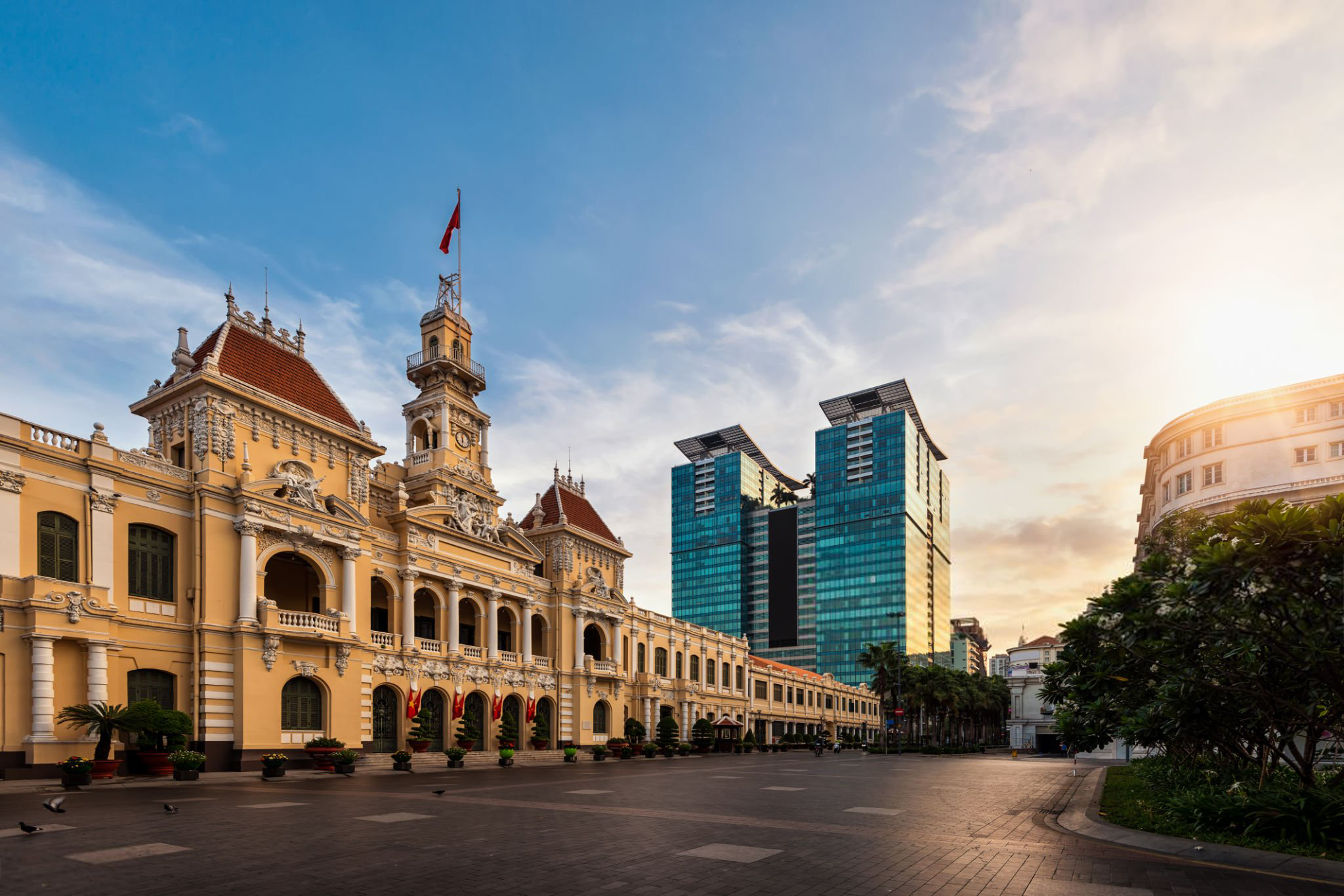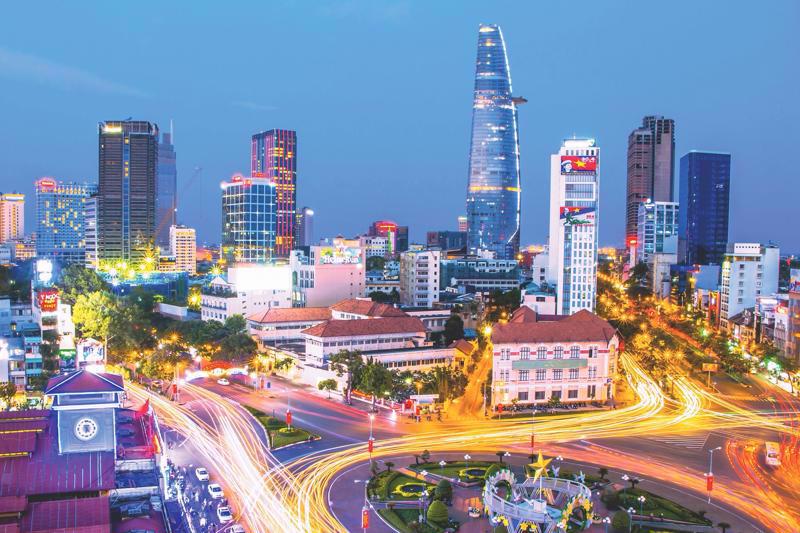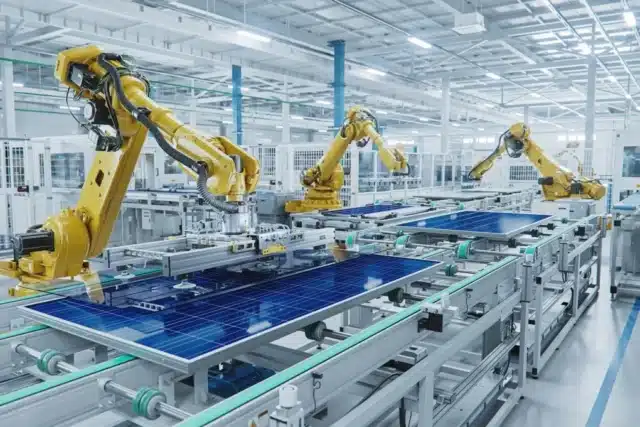Why Invest in Vietnam Now?
Why Invest in Vietnam Now?
August 15, 2024
Why invest in Vietnam now? Imagine tapping into a market of 96 million young, tech-savvy consumers, where GDP growth outpaces global averages and digital adoption is skyrocketing. Now, picture this opportunity in a country strategically positioned as a manufacturing powerhouse, with government backing and a competitive edge in the post-pandemic economy. It's Vietnam, today.

Vietnam is a top investment destination in Southeast Asia. It offers clear economic benefits and strategic advantages for investors. Global businesses are shifting strategies due to recent disruptions, and Vietnam is a prime target. This article explores the compelling reasons why invest in Vietnam and explains why it currently offers the best opportunities for investors.
Understanding Vietnam’s Market
Vietnam has offering a unique blend of opportunities that make it an increasingly attractive destination for businesses worldwide:
- Young, tech-savvy population: Over 96 million people with a median age of 32.4 in 2023, highly adaptable to new technologies and consumer trends.
- Robust economic growth: 5.0% GDP growth in 2023, showcasing resilience with post-pandemic and amid economic turbulence.
- Evolving service sector: Now accounts for 42.54% of GDP in 2023, indicating a maturing economy moving beyond manufacturing.
- Booming digital market: Digital advertising set to double to $602 million by 2025, with the 5th highest internet penetration rate in Southeast Asia.
- Expanding middle class: Projected to reach 44 million by 2030, demanding higher quality products and services across all sectors.
- Sector opportunities: Rapid growth in manufacturing, renewable energy, and technology sectors.
- Market challenges: There are still a few challenges investor should keep in mind, such as corruption (ranking 87th out of 180 countries), infrastructure gaps, and potential environmental risks, especially in climate-vulnerable areas.
Vietnam as a Prime Investment Destination
Vietnam’s rise as an investment hotspot is no accident. It’s the result of a combination of natural advantages, strategic government policies, and ongoing development efforts. Let’s delve into the key factors that make Vietnam stand out:
Strategic location
Its position in Southeast Asia, extensive coastline, and proximity to major markets make it ideal for manufacturing and trade. Vietnam’s strategic advantages include:
- A 3,260 km coastline providing access to major shipping routes
- Bordering China, a key player in global supply chains
- Close proximity to other fast-growing ASEAN economies
- Serving as a bridge between Northeast and Southeast Asia
This prime location allows companies to leverage Vietnam’s position to optimize their supply chains and distribution networks across the Asia-Pacific region. The country’s strategic location not only facilitates efficient import and export activities but also positions Vietnam as a crucial link in regional and global value chains.

Government support
The Vietnamese government has demonstrated a strong commitment to attracting foreign investment through a range of supportive policies and incentives. These include:
- Generous tax incentives, such as Corporate Income Tax (CIT) holidays and reductions for qualifying projects
- Import duty exemptions, particularly for machinery, equipment, and raw materials used in export-oriented industries
- Streamlined investment procedures, including the establishment of one-stop-shop services to simplify business registration and licensing processes
These proactive measures significantly reduce the barriers to entry and operational costs for foreign investors, creating a business-friendly ecosystem. The government’s continued focus on improving the investment climate reflects its long-term commitment to economic growth and integration into the global economy.
Strong FDI Track Record
Vietnam’s FDI performance speaks volumes about its investment climate. In June 2024, FDI inflows increased by 10.84 USD Billion, continuing a trend of consistent year-on-year growth over the past decade. This robust track record not only showcases Vietnam’s attractiveness but also provides a comfort factor for new investors considering market entry.
The country has successfully attracted diverse investments across sectors, including manufacturing, real estate, and renewable energy. This diversification demonstrates Vietnam’s ability to accommodate various types of investment projects and adapt to changing global economic trends.
Skilled, Affordable Workforce
Vietnam’s labor market is a key driver of its competitiveness. The country boasts a large pool of young, tech-savvy workers with a median age of 32.5 years. There’s a strong emphasis on STEM education, producing skilled graduates in technology and engineering fields.
Competitive labor costs compared to regional peers, combined with high adaptability and willingness to learn new skills, make Vietnam particularly attractive for both labor-intensive industries and high-tech sectors. This unique combination of youth, skills, and cost-effectiveness positions Vietnam as an ideal destination for companies looking to establish or expand their operations in Southeast Asia.
Political stability
Vietnam’s stable political environment provides a crucial backdrop for long-term investment. The country’s single-party system ensures policy continuity, while its gradual and pragmatic approach to economic reforms has created a predictable business environment.
The government’s commitment to international integration and open markets further enhances Vietnam’s appeal to foreign investors. This stability translates into predictable business conditions, allowing investors to plan and operate with greater confidence, which is essential for long-term investment strategies.
Improving Infrastructure
Vietnam is making significant strides in upgrading its infrastructure, enhancing its competitiveness and creating new investment opportunities across various sectors. Massive investments are being made in transportation networks, including highways, seaports, and airports. The rapid expansion of industrial parks and economic zones provides ready-made facilities for investors.
Ongoing improvements in power generation and distribution are addressing previous concerns about energy stability. Additionally, there’s a growing focus on digital infrastructure and smart city initiatives, positioning Vietnam at the forefront of technological advancement in the region.
Free Trade Agreements
Vietnam’s commitment to international trade is exemplified by its extensive network of free trade agreements (FTAs). These agreements have significantly enhanced Vietnam’s integration into the global economy and provide investors with unparalleled access to major markets worldwide.
Vietnam is currently party to 18 FTAs, with several more under negotiation. Some of the most impactful agreements include:
| Agreement | Key Benefits |
| CPTPP (Comprehensive and Progressive Agreement for Trans-Pacific Partnership) | Access to 11 Pacific Rim countries, reduced tariffs on 95% of goods, enhanced IP protection |
| EVFTA (EU-Vietnam Free Trade Agreement) | Eliminate import duties on 85.6% of tariff lines, increasing to 99.2% after 7 years, equivalent to 99.7% of Vietnam export turnover. This agreement immensely promote trades between EU and Vietnam. |
| RCEP (Regional Comprehensive Economic Partnership) | Simplified trade procedures within Asia-Pacific, harmonized rules of origin |
| UKVFTA (UK-Vietnam Free Trade Agreement) | Elimination of 99% of tariffs over time, improved access to UK services market |
| AKFTA (ASEAN-Korea Free Trade Agreement) | Preferential tariffs for trade with South Korea, increased economic cooperation |
These FTAs provide preferential tariffs, reduced trade barriers, and enhanced intellectual property protection, opening doors to major global markets. For investors, this means increased competitiveness and the potential to reach a vast consumer base beyond Vietnam’s borders.
Industrial Facilities
Vietnam offers a wide array of well-equipped industrial parks and economic zones that provide turnkey solutions for investors. These facilities feature modern infrastructure with reliable utilities and logistics support. The cluster-based development approach fosters industry ecosystems, creating synergies and efficiencies for businesses.
Many of these industrial zones offer additional incentives and streamlined administrative procedures, including on-site customs clearance and one-stop administrative services. This comprehensive support system enables rapid market entry and operational efficiency for foreign investors, reducing the time and resources needed to establish a presence in Vietnam.
Why the Time to Invest in Vietnam is Now
While Vietnam’s long-term potential is clear, there are several compelling reasons why investors should consider entering the market sooner rather than later.
Economic Recovery
Vietnam’s economy is showing strong signs of recovery and growth. Forecasts indicate that economic growth is expected to reach 5.5% in 2024, with a gradual rise to 6.0% by 2025. This robust growth trajectory is particularly impressive given the global economic challenges of recent years.
The country’s resilience during the pandemic and its swift recovery afterwards demonstrate the strength and adaptability of Vietnam’s economy. This growth is driven by a combination of factors, including increased domestic consumption, a rebound in manufacturing and exports, and continued foreign investment inflows.
For investors, this economic recovery presents an opportunity to enter a market that is on an upward trajectory, potentially benefiting from increased consumer spending and business expansion.

China Plus One strategy (“C+1”) momentum
Vietnam has emerged as an ideal alternative for businesses looking to diversify their operations away from China. This trend, known as the “C+1” strategy, has gained significant momentum in recent years due to various factors:
- Rising labor costs in China
- Ongoing trade tensions
- Supply chain disruptions
- Geopolitical considerations
Vietnam’s proximity to China, coupled with its lower labor costs and improving infrastructure, makes it an attractive option for companies seeking to maintain their Asian presence while mitigating risks. The country has already successfully attracted major manufacturers in industries such as electronics, textiles, and automotive components. This shift highlights Vietnam’s emergence as one of the top investment sectors in the region, offering a balance of opportunity and risk mitigation for global businesses seeking to maintain a strong Asian foothold.
Investing in Vietnam now allows businesses to capitalize on this trend early, establishing a strong foothold before competition intensifies.
Improving business ecosystem
Vietnam is continuously enhancing its business environment through ongoing policy improvements and regulatory reforms. These efforts are reflected in the country’s rising rankings in global business indices.
Key improvements include streamlining of business registration processes, enhanced protection for intellectual property rights, increased transparency in government procedures, and reforms in the financial sector to improve access to capital.
This upward trend demonstrates Vietnam’s commitment to creating a more favorable business environment for foreign investors.
Digital Boom
Vietnam is experiencing a remarkable digital transformation. The country was the fastest-growing digital economy in ASEAN in 2022 and 2023, and it is expected to maintain this position until 2025. This growth is driven by rapid adoption of digital technologies across various sectors, including e-commerce, fintech, and digital services.
A key factor in this digital boom is the widespread adoption of smartphones. By 2026, the number of smartphone users in Vietnam is anticipated to reach 67.3 million, accounting for 96.9% of Internet users. This high level of digital connectivity creates numerous opportunities for businesses in areas such as e-commerce, digital financial services, EdTech, and digital marketing.
Infrastructure Development
Vietnam is in the midst of a significant infrastructure upgrade, with major projects underway in transportation, energy, and urban development. These improvements will enhance connectivity, reduce logistics costs, and create new economic opportunities across the country.
Some notable infrastructure projects include:
- Long Thanh international airport: Set to become a major aviation hub in Southeast Asia
- North-South expressway: Connecting major economic centers along Vietnam’s coastline
- Metro systems in Hanoi and Ho Chi Minh City: Easing urban congestion and promoting sustainable transportation
- Expansion of renewable energy capacity: Targeting 30% of total energy production by 2030
By establishing a presence in Vietnam before these major projects are completed, investors can gain a competitive advantage, securing prime locations and building local relationships.
Changing Consumer Market
Vietnam’s consumer market is undergoing rapid transformation, driven by rising incomes, urbanization, and changing lifestyle preferences. This evolution is creating opportunities across various sectors, including retail, food and beverage, healthcare, and education.
Key trends in the consumer market include:
- Growing middle class with increased purchasing power
- Shift towards premium and branded products
- Increased health and wellness consciousness
- Rising demand for experiential and lifestyle services
- Adoption of e-commerce and digital payment solutions
By entering the market now, businesses can position themselves to capitalize on these trends early. This allows companies to build brand recognition, understand local consumer preferences, and adapt their offerings to meet the evolving needs of Vietnamese consumers.
Vietnam’s market fundamentals and strategic advantages create a prime investment opportunity. Early entrants can gain significant market share and profitability. However, success requires understanding local regulations and market dynamics.
Talentnet’s HR Compliance Guidebook and Pre-licensing Regulatory Advice Service offer essential insights and guidance for navigating Vietnam’s business landscape. From entity setup to labor compliance, our experts help optimize your market entry strategy. Explore Talentnet’s services to unlock your investment’s full potential in this rising market.





